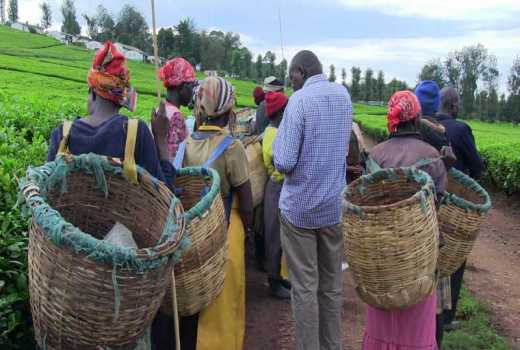×
The Standard e-Paper
Smart Minds Choose Us

At first glance, the sprawling 300 acres of the tea plantation at Kabianga Tea Farm owned by Governor Paul Chepkwony administration gives a false impression that everything is fine.
However, a quick glance at the tea plucker’s torn aprons and patched up tea leaf baskets reveals the first list in the sad tale of the at least 300 workers.